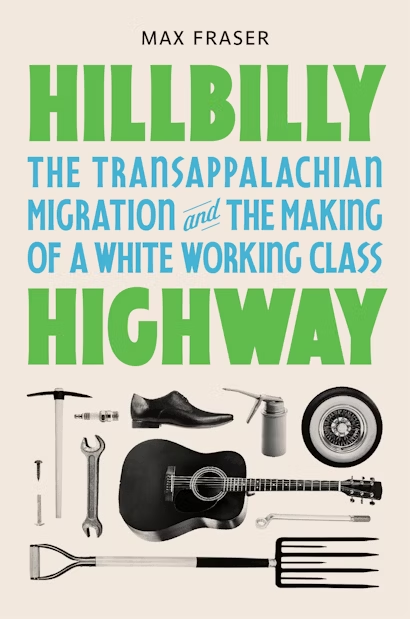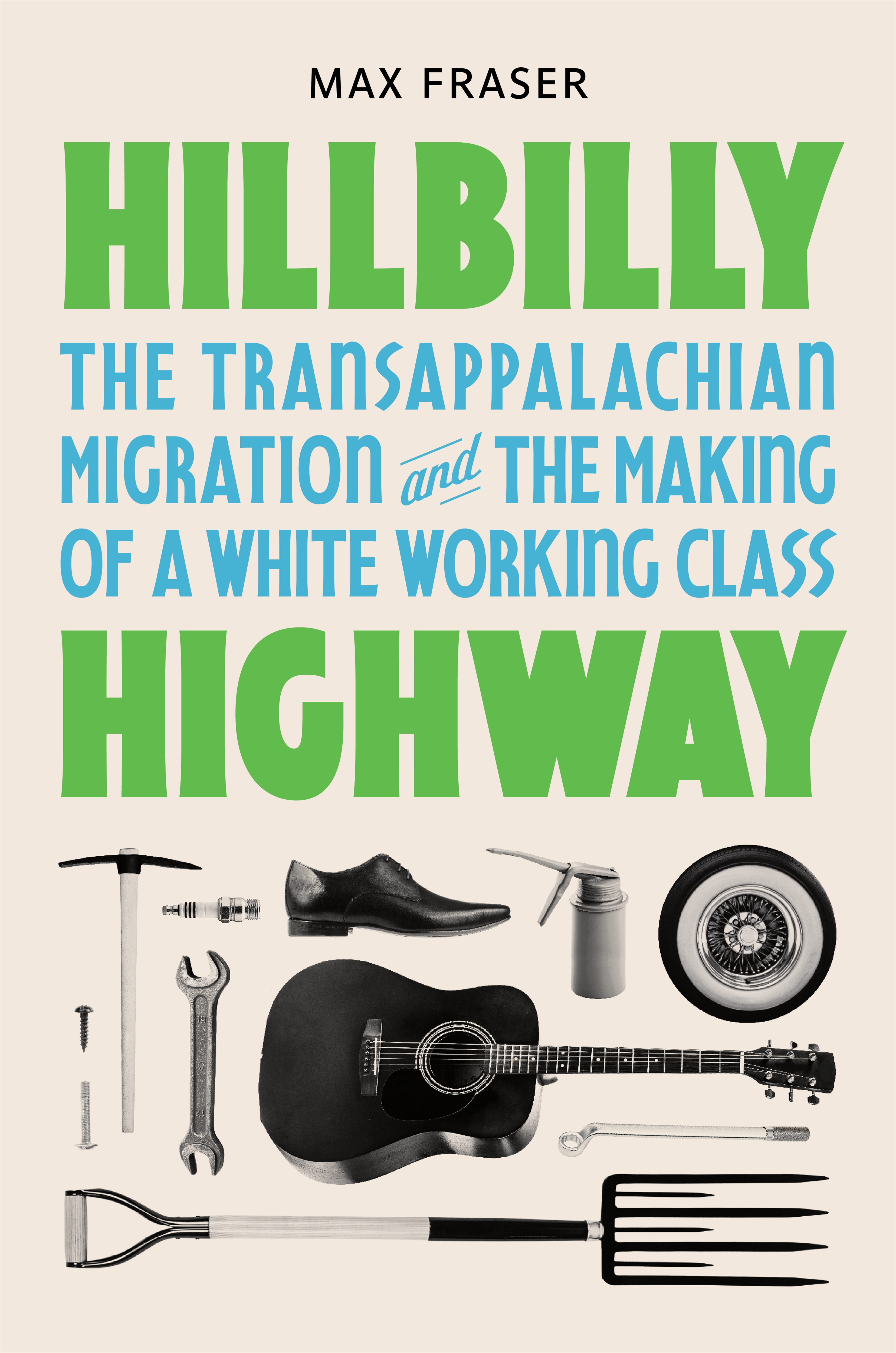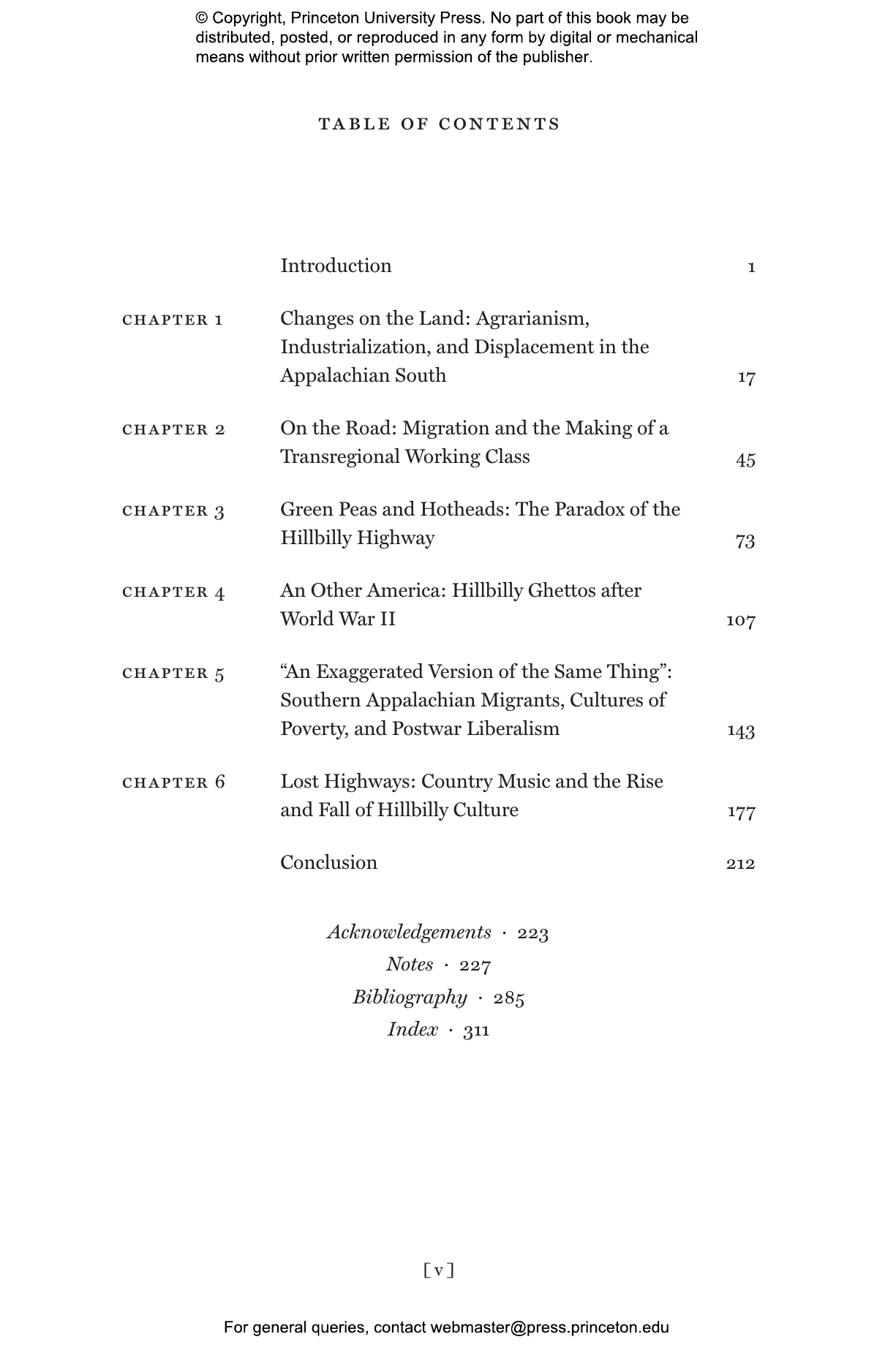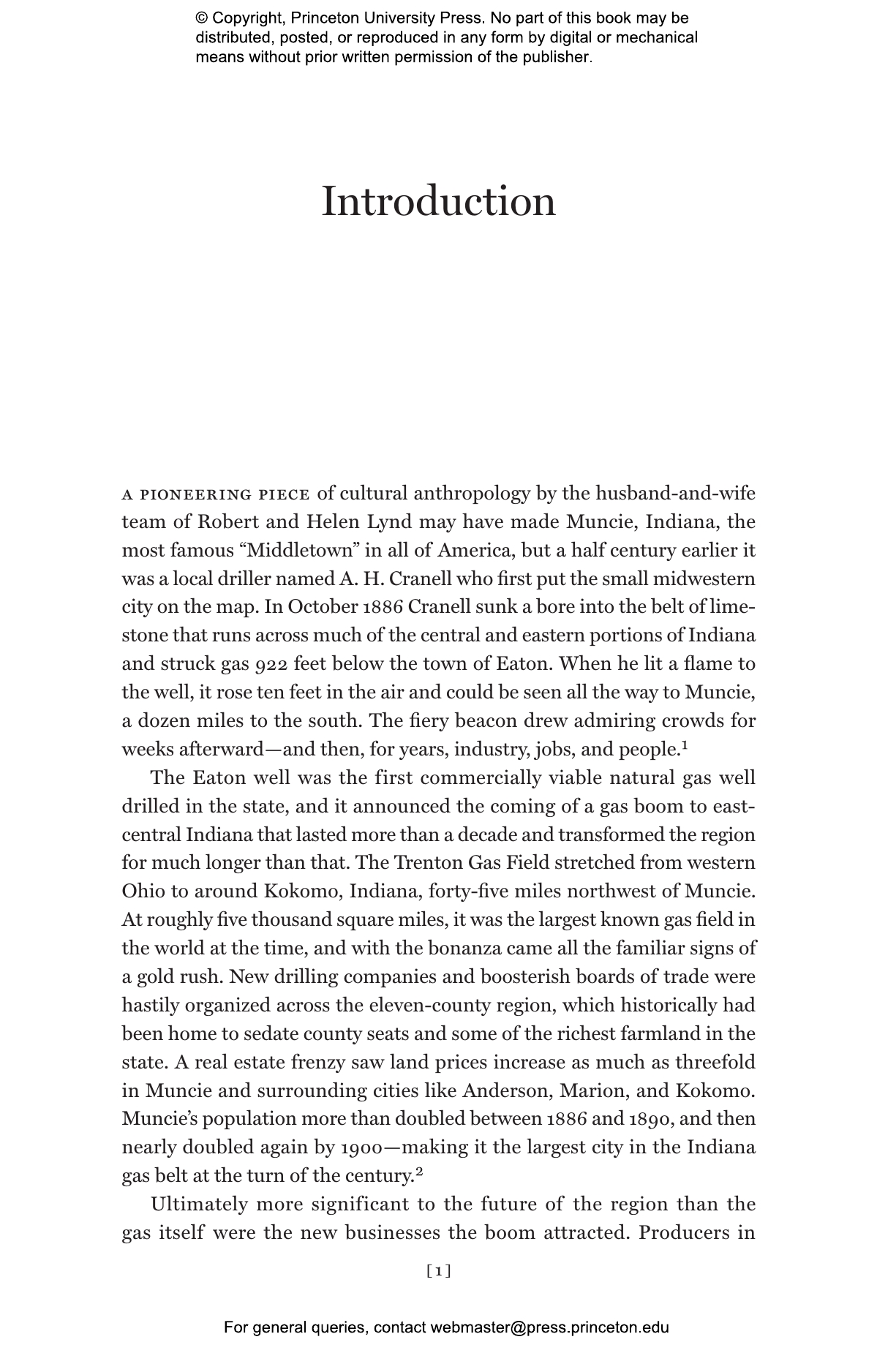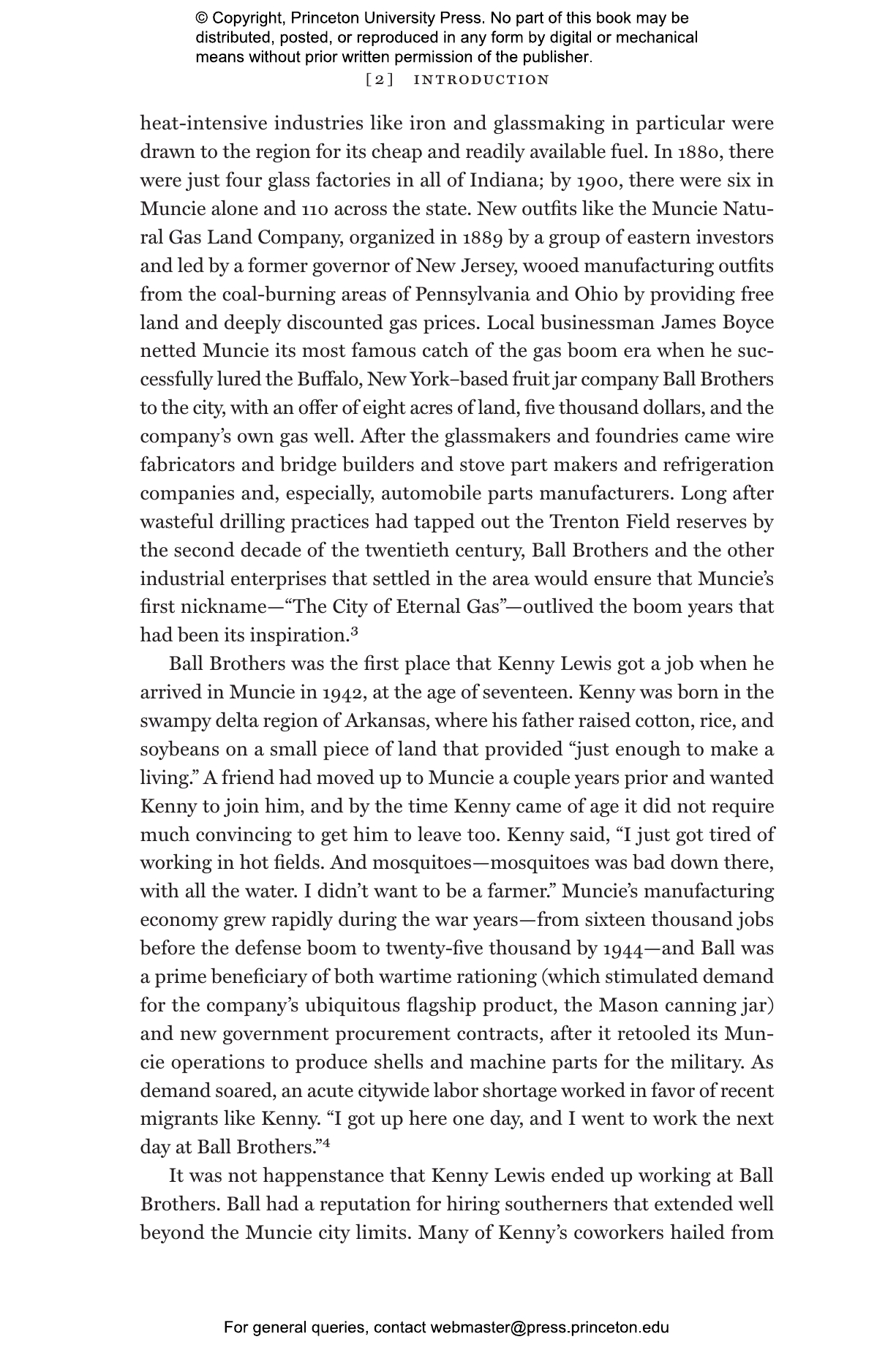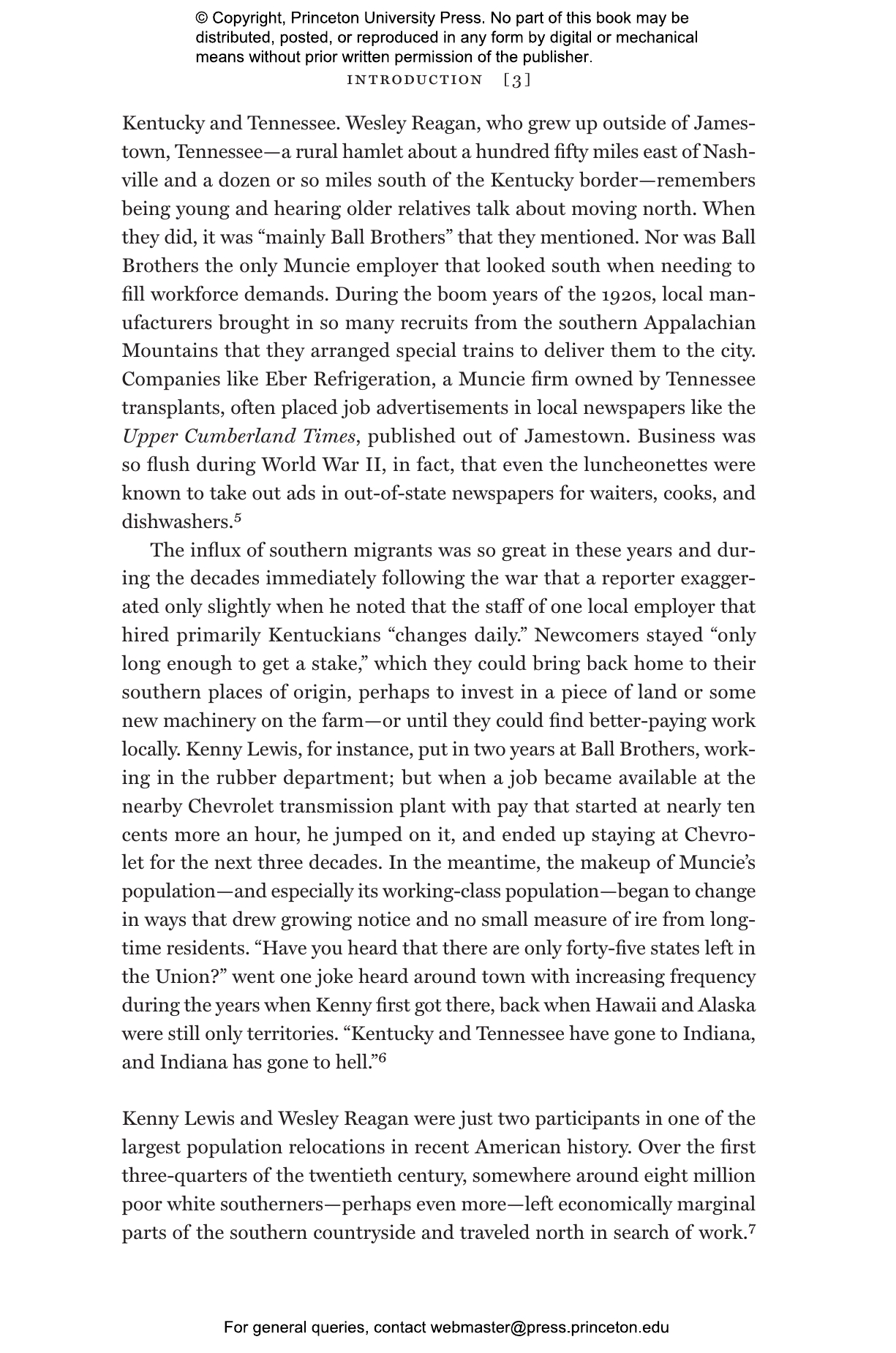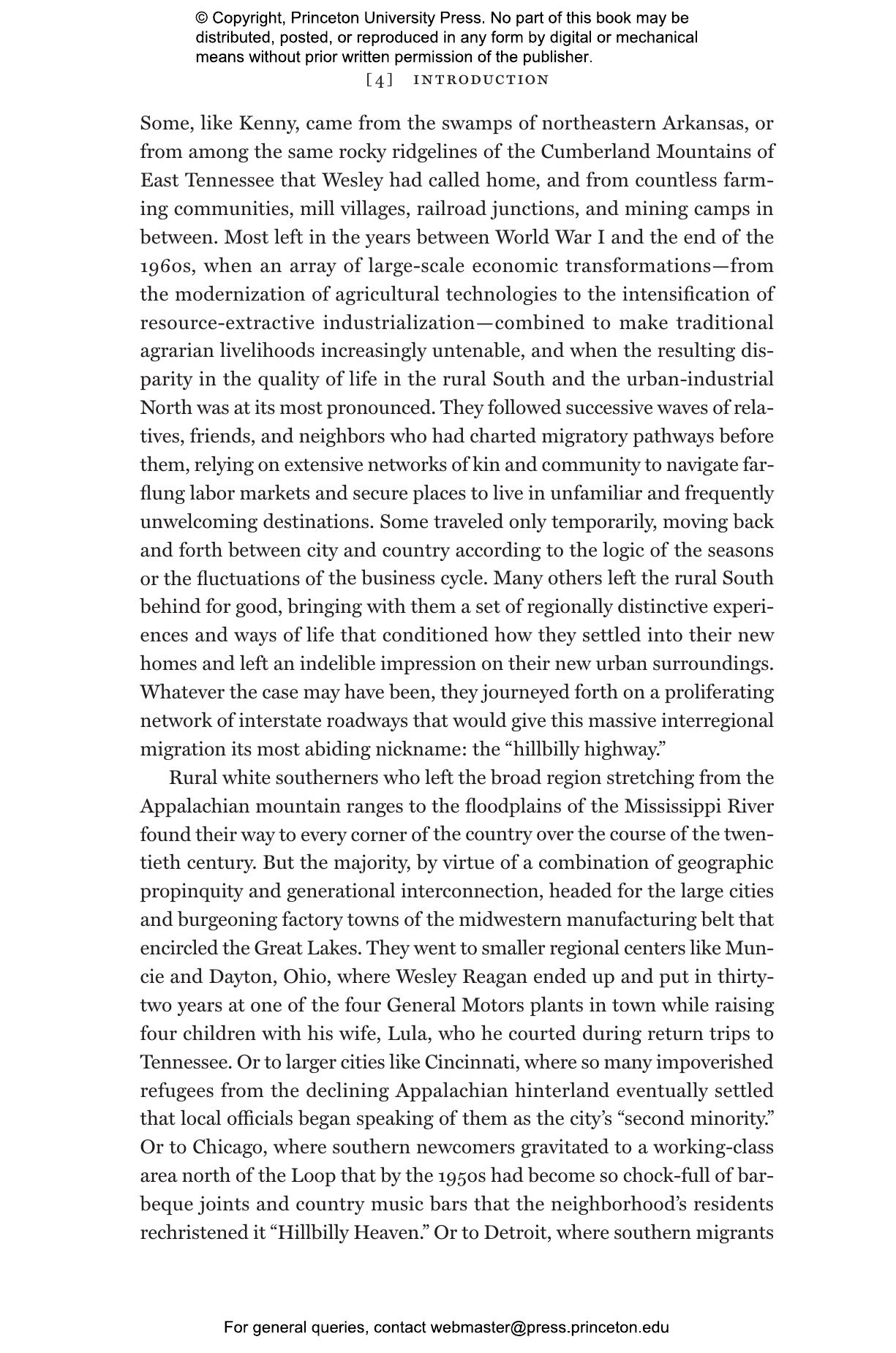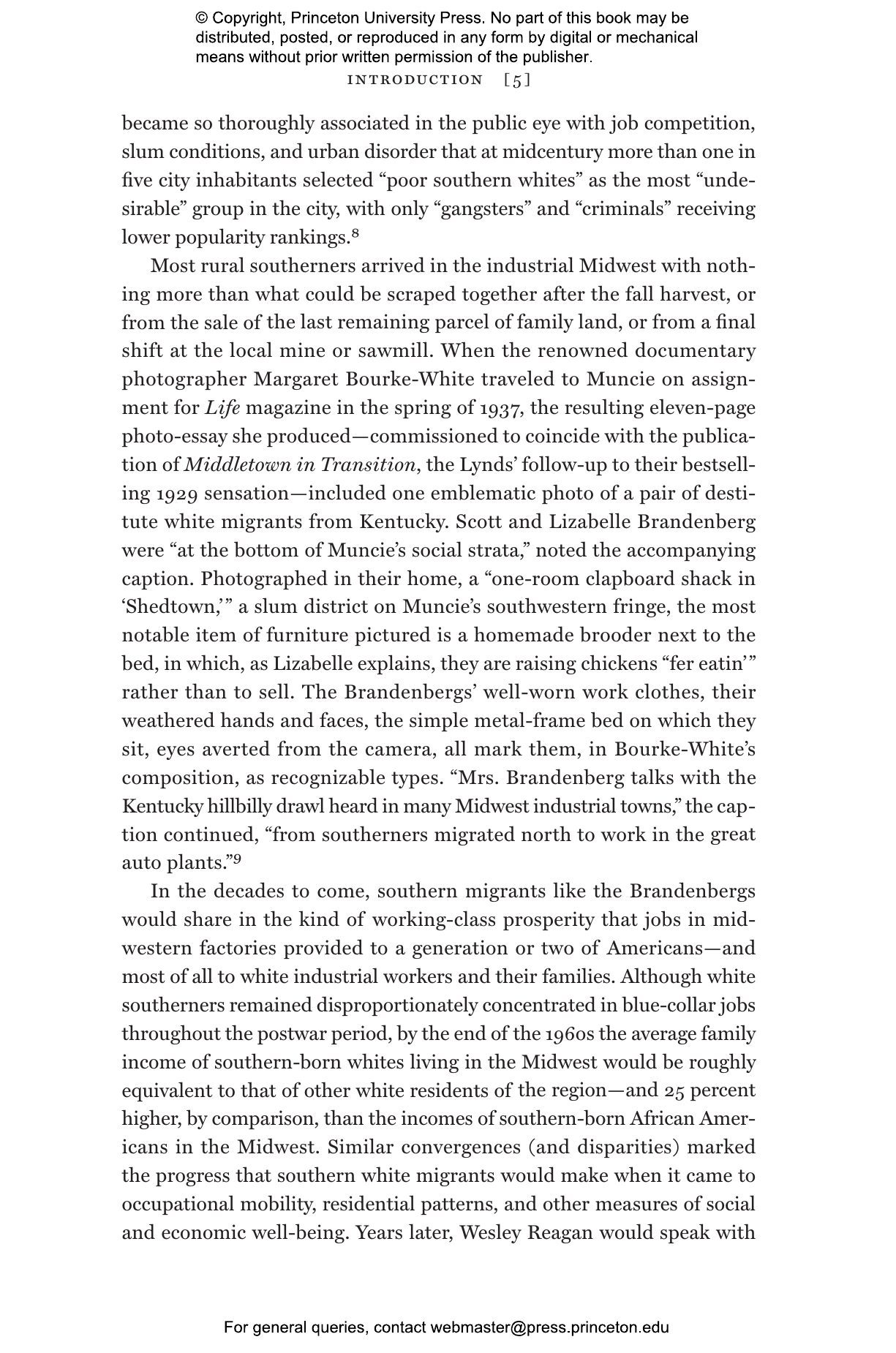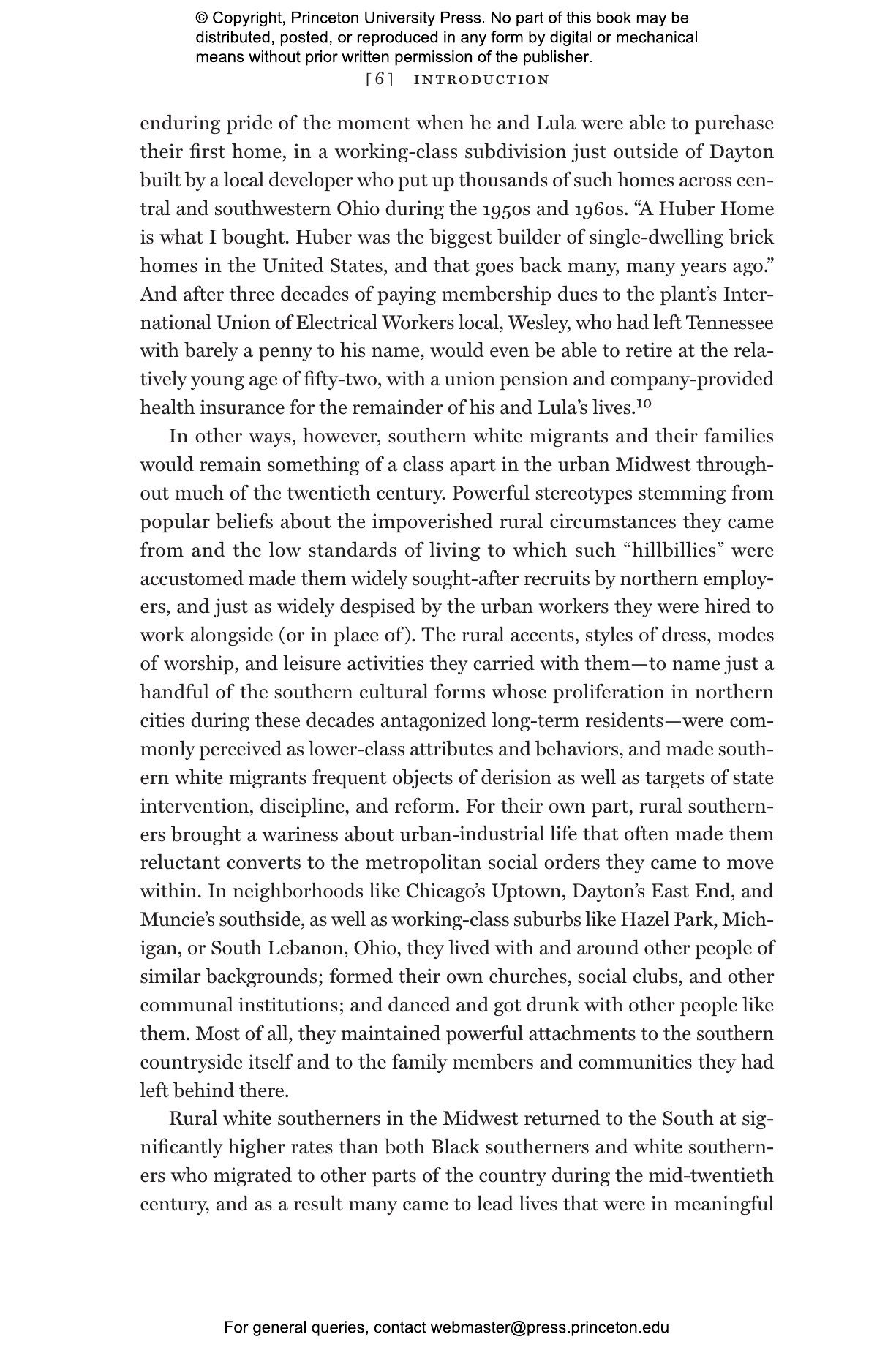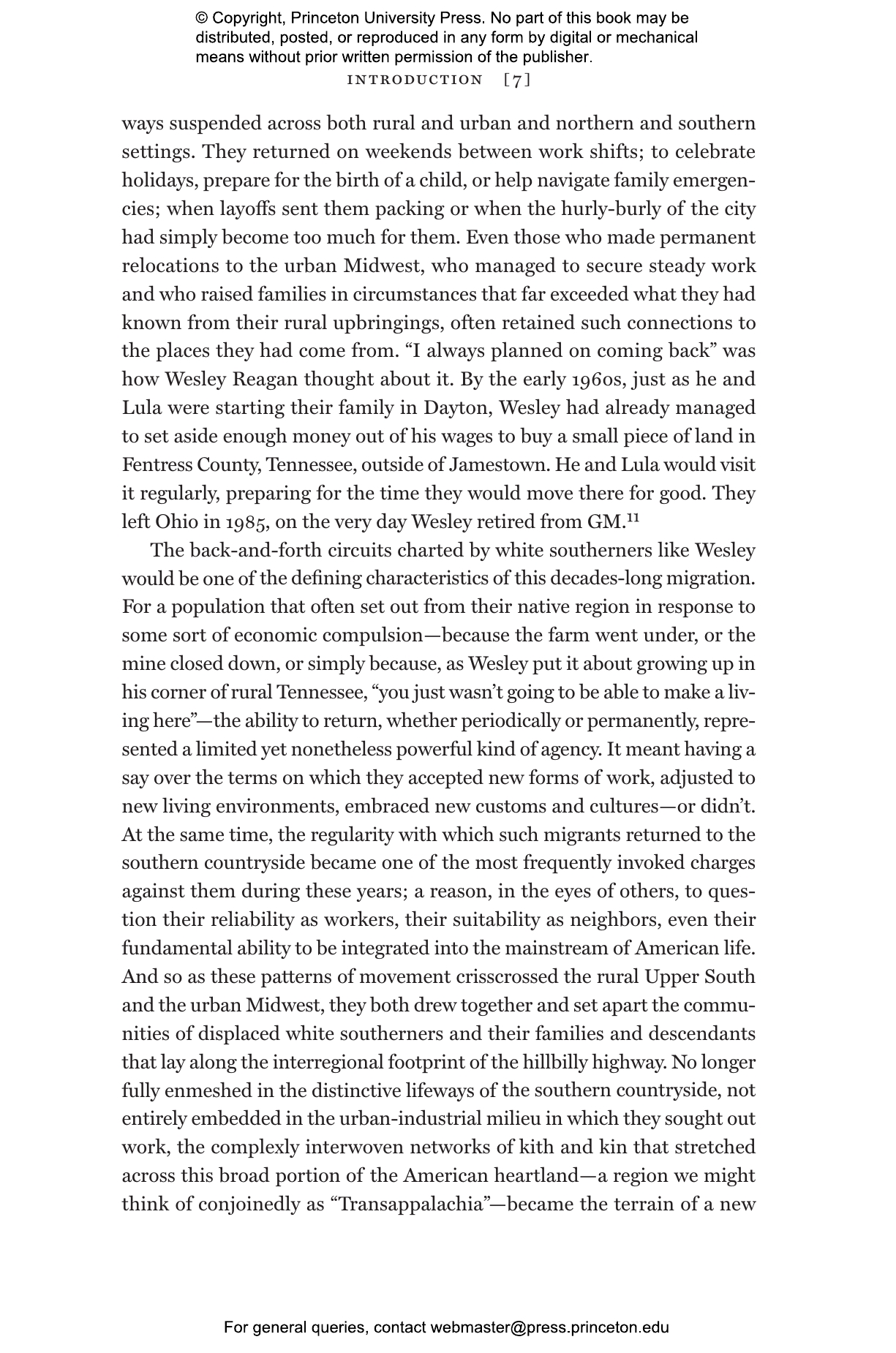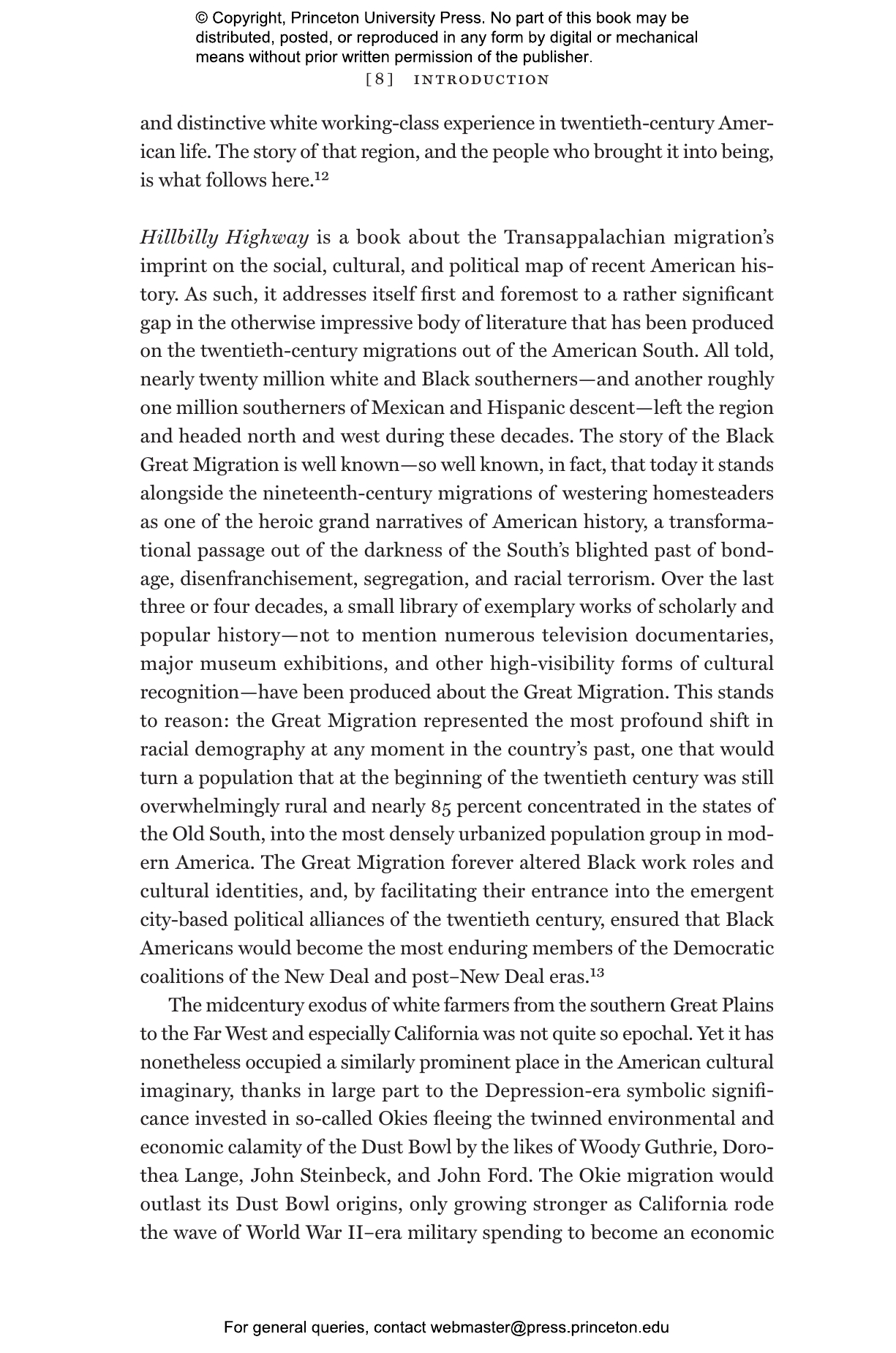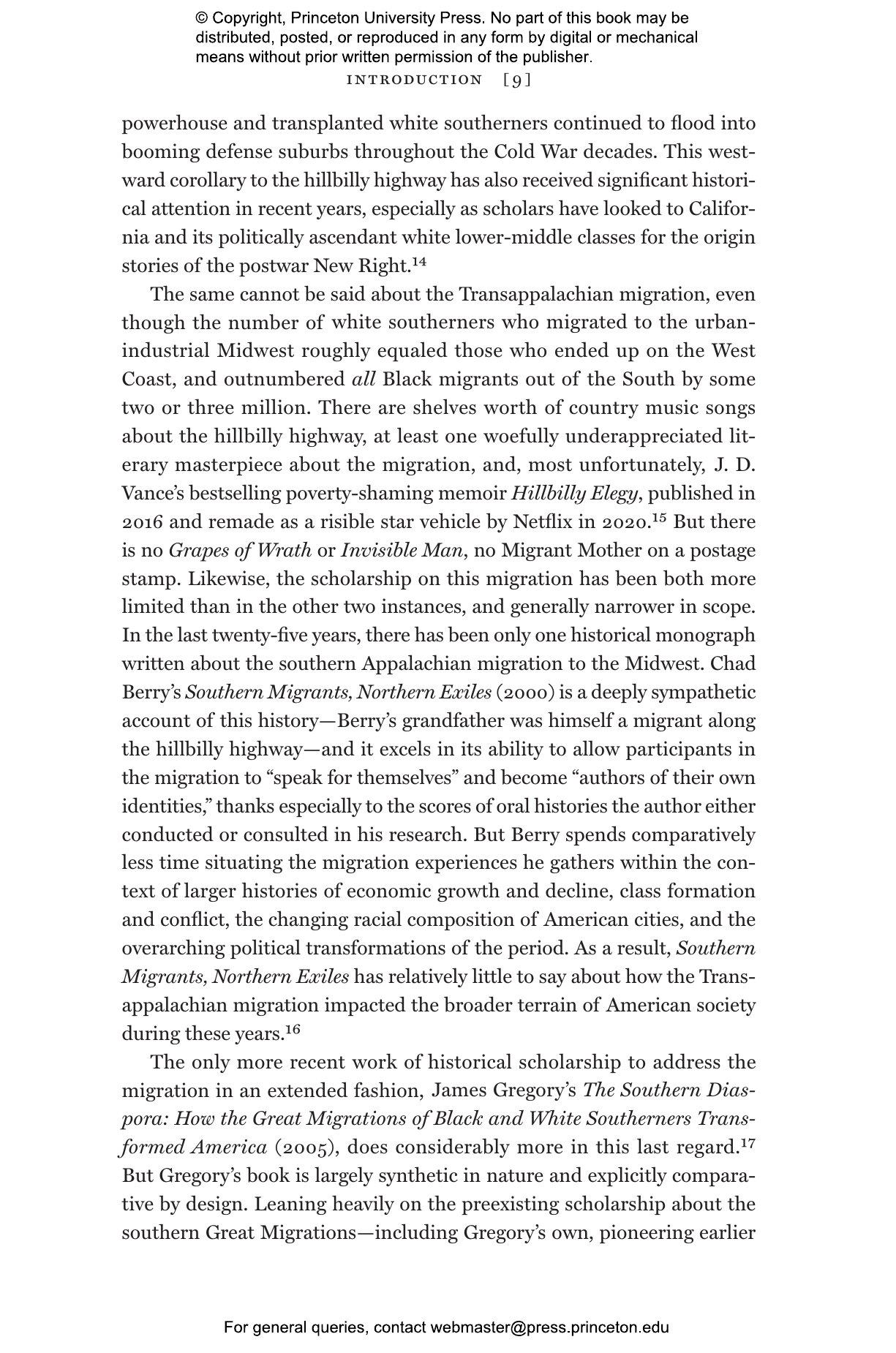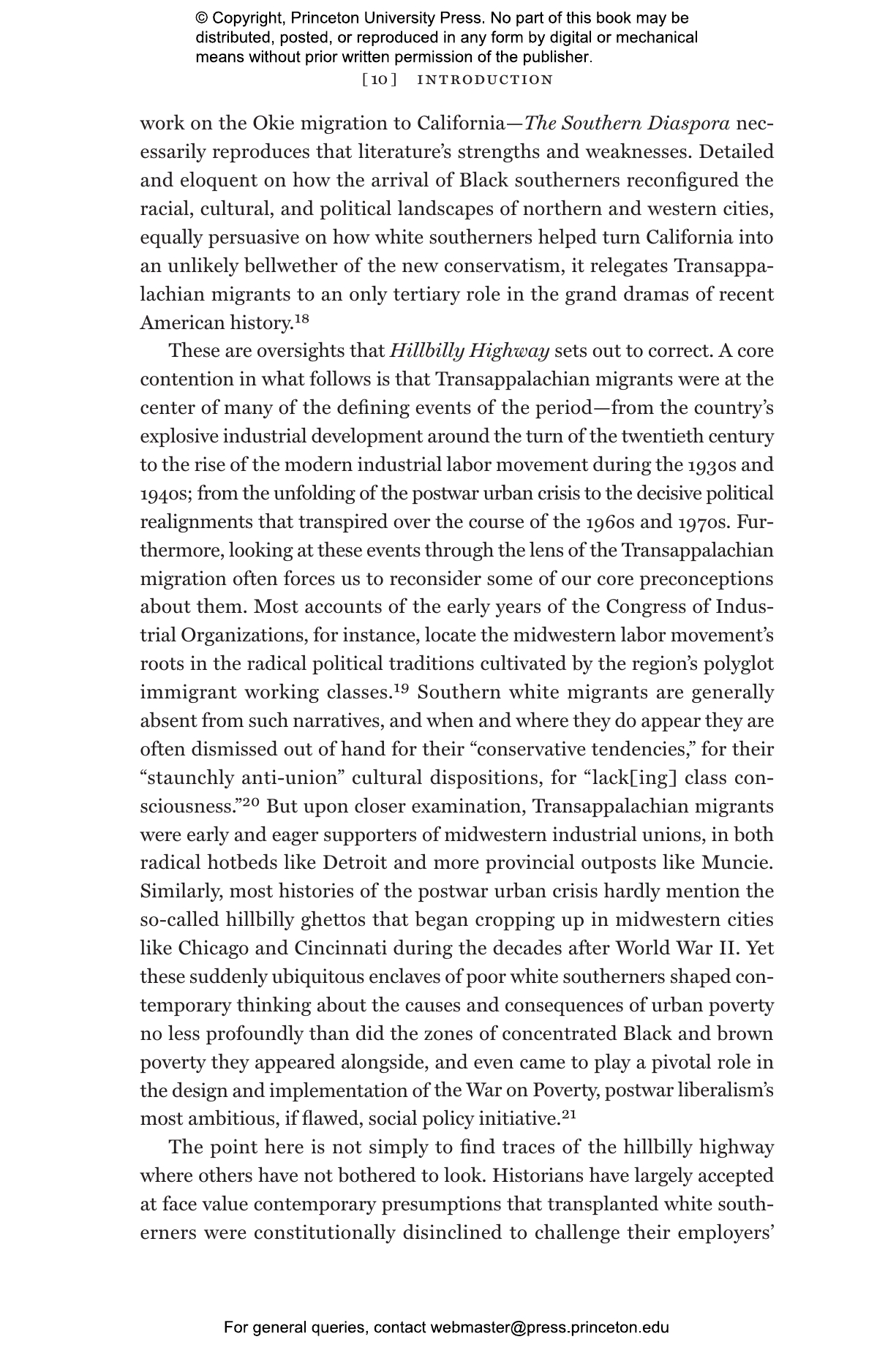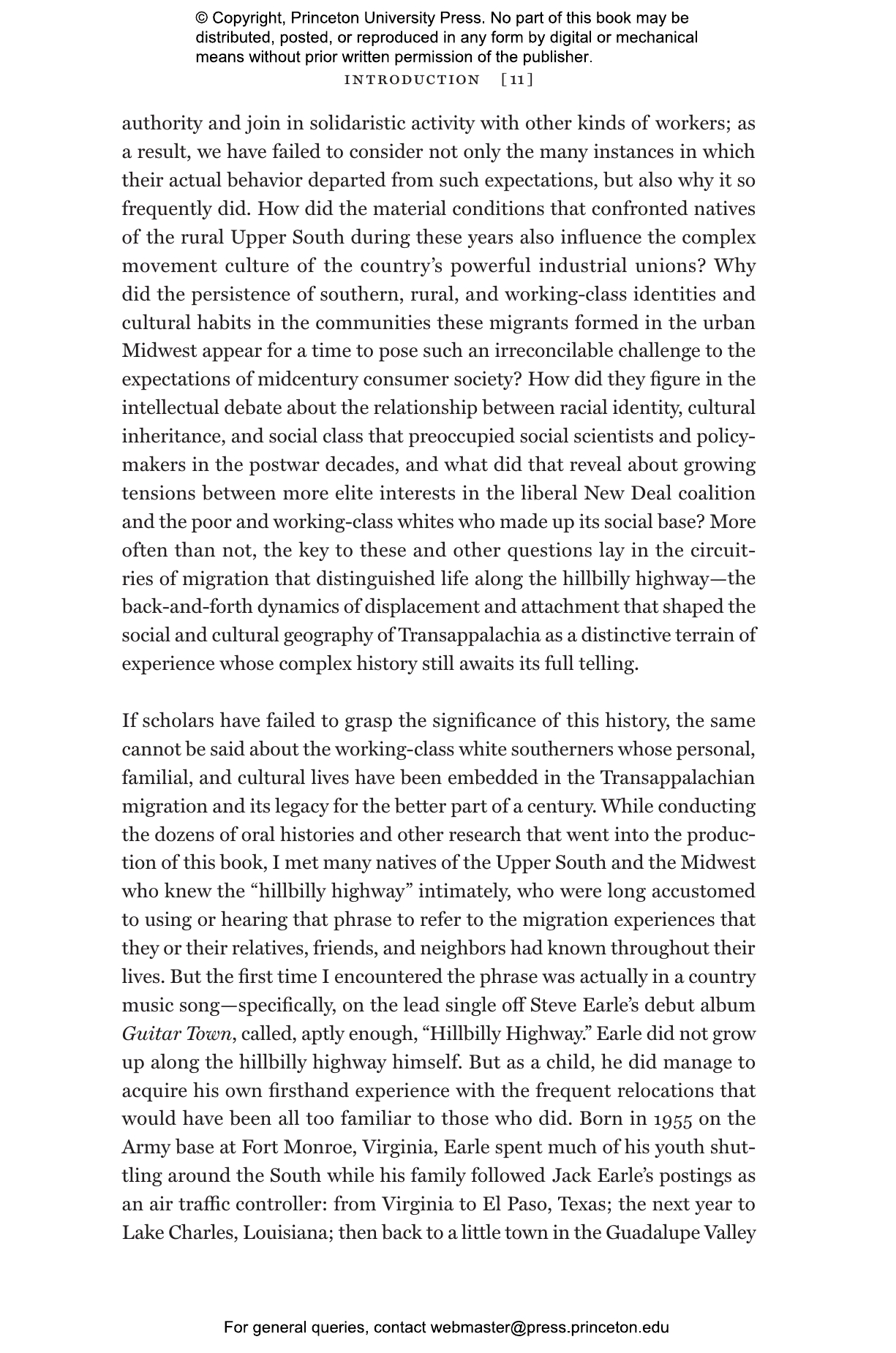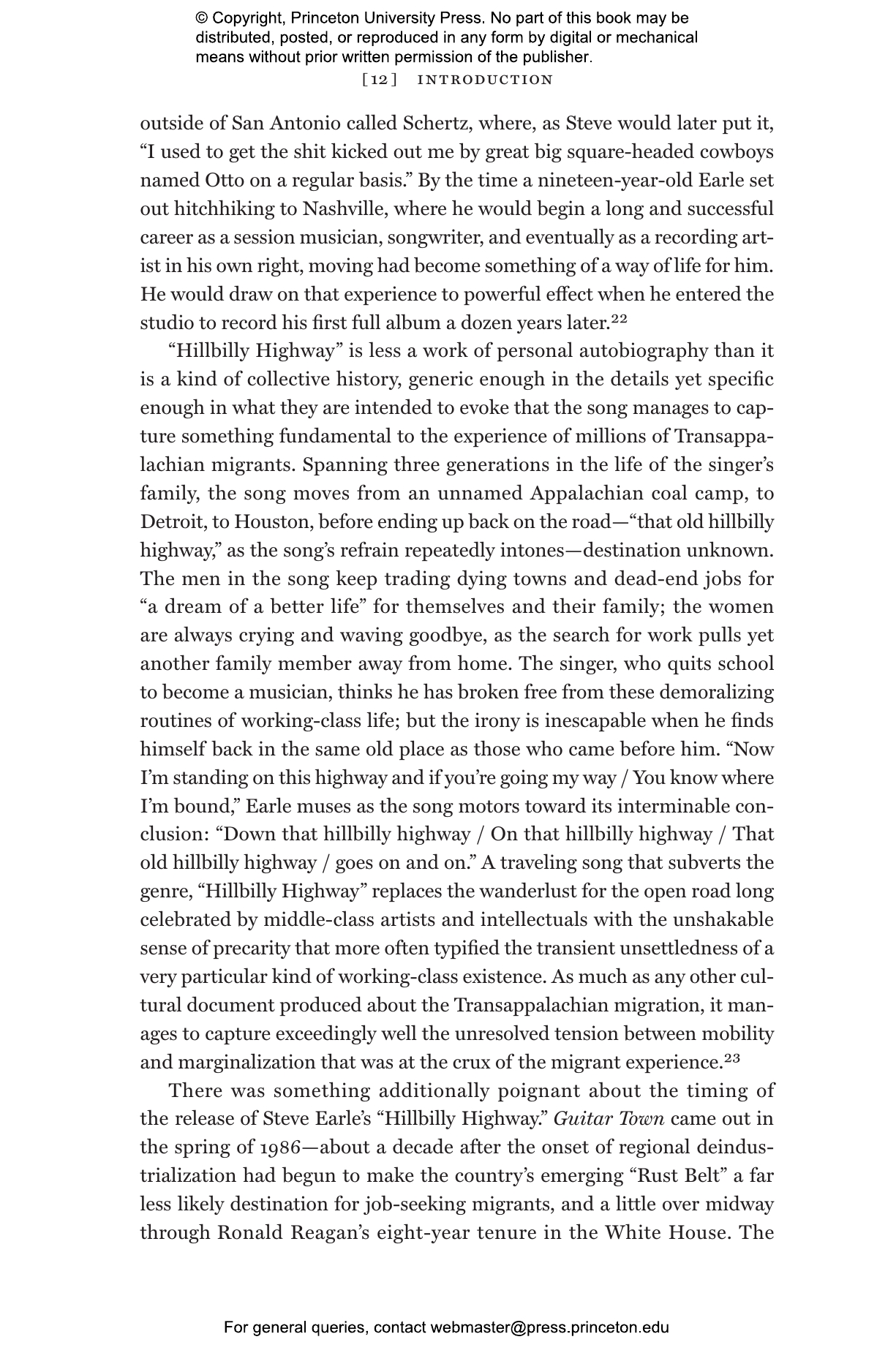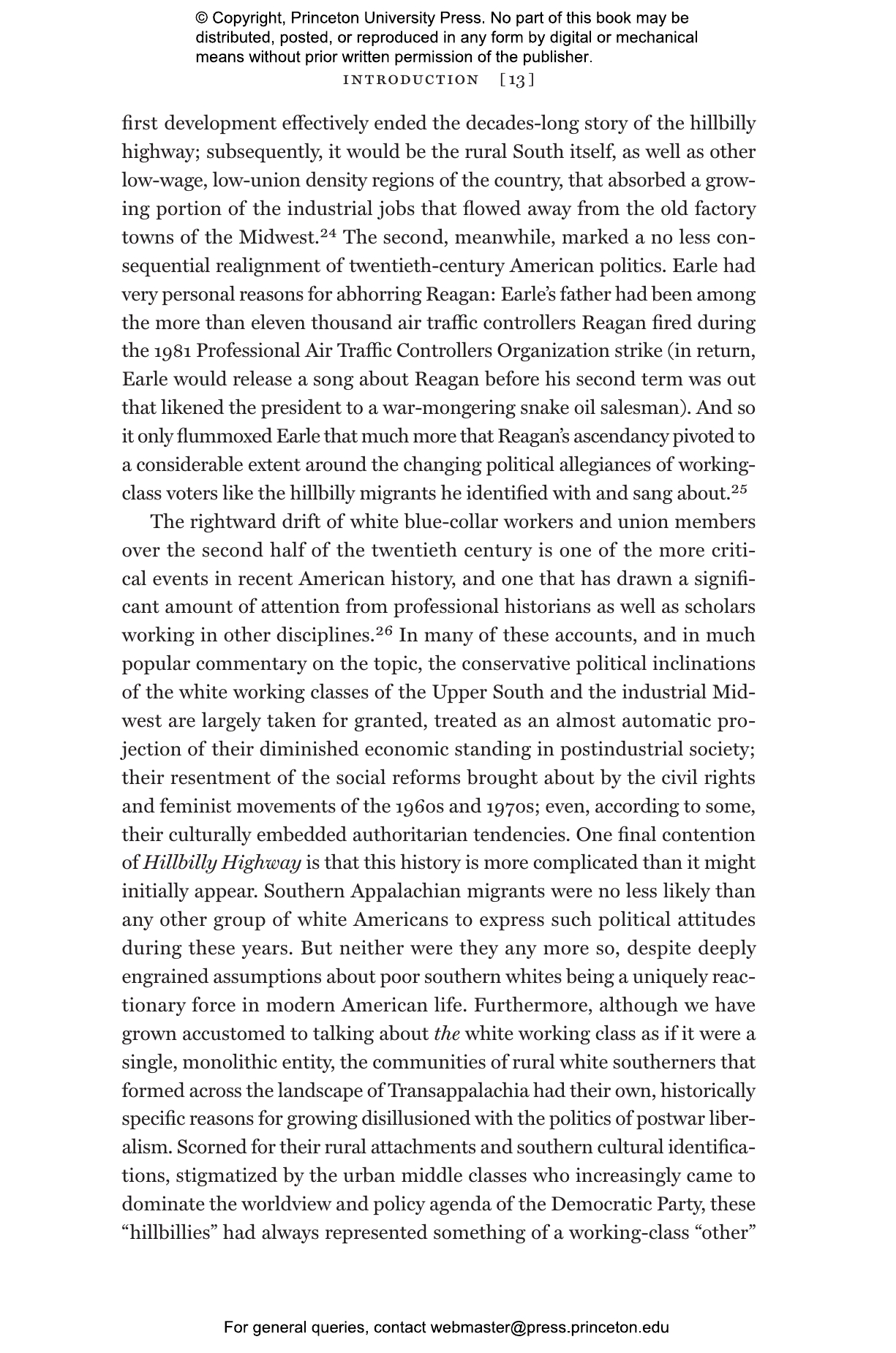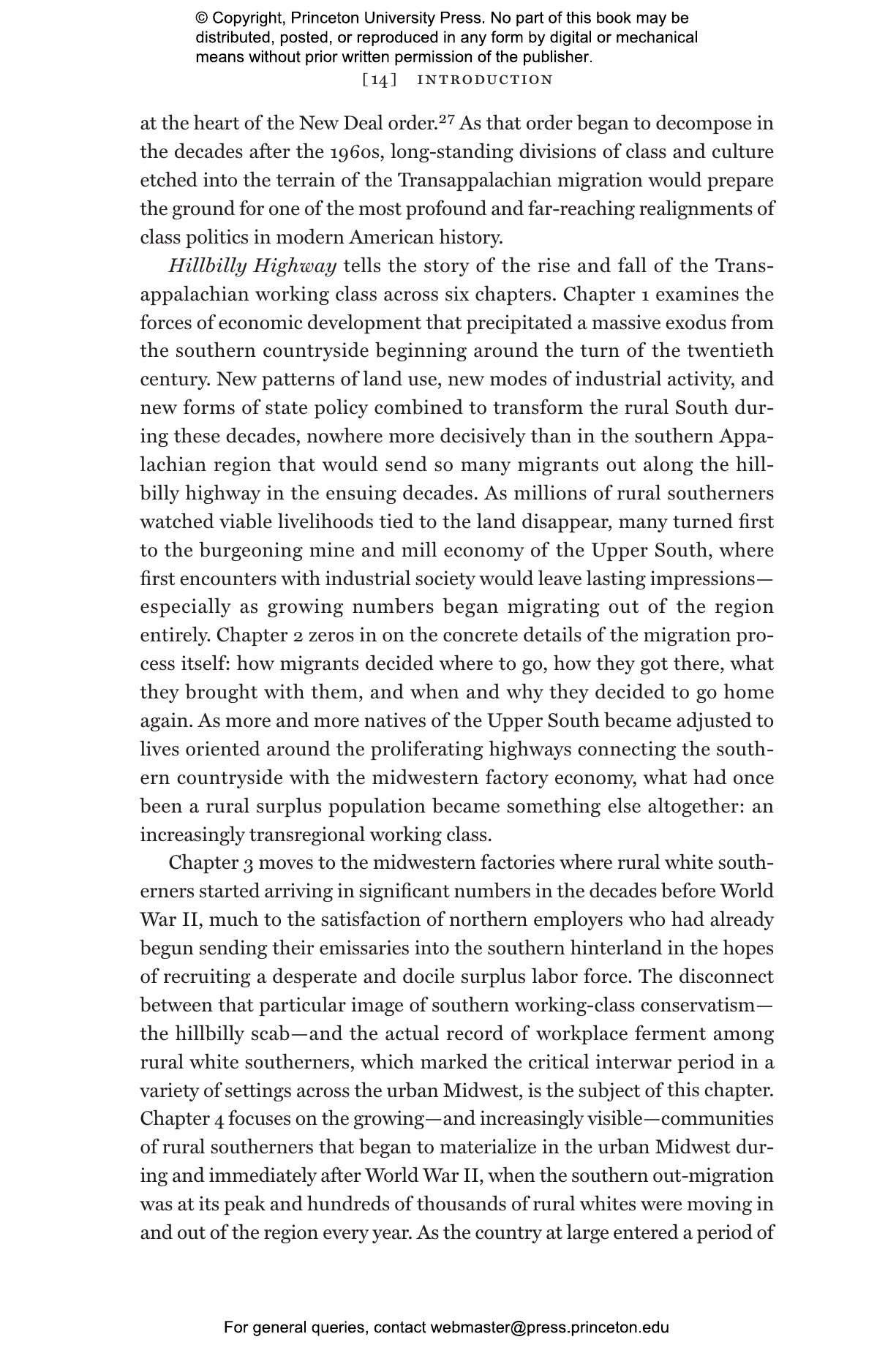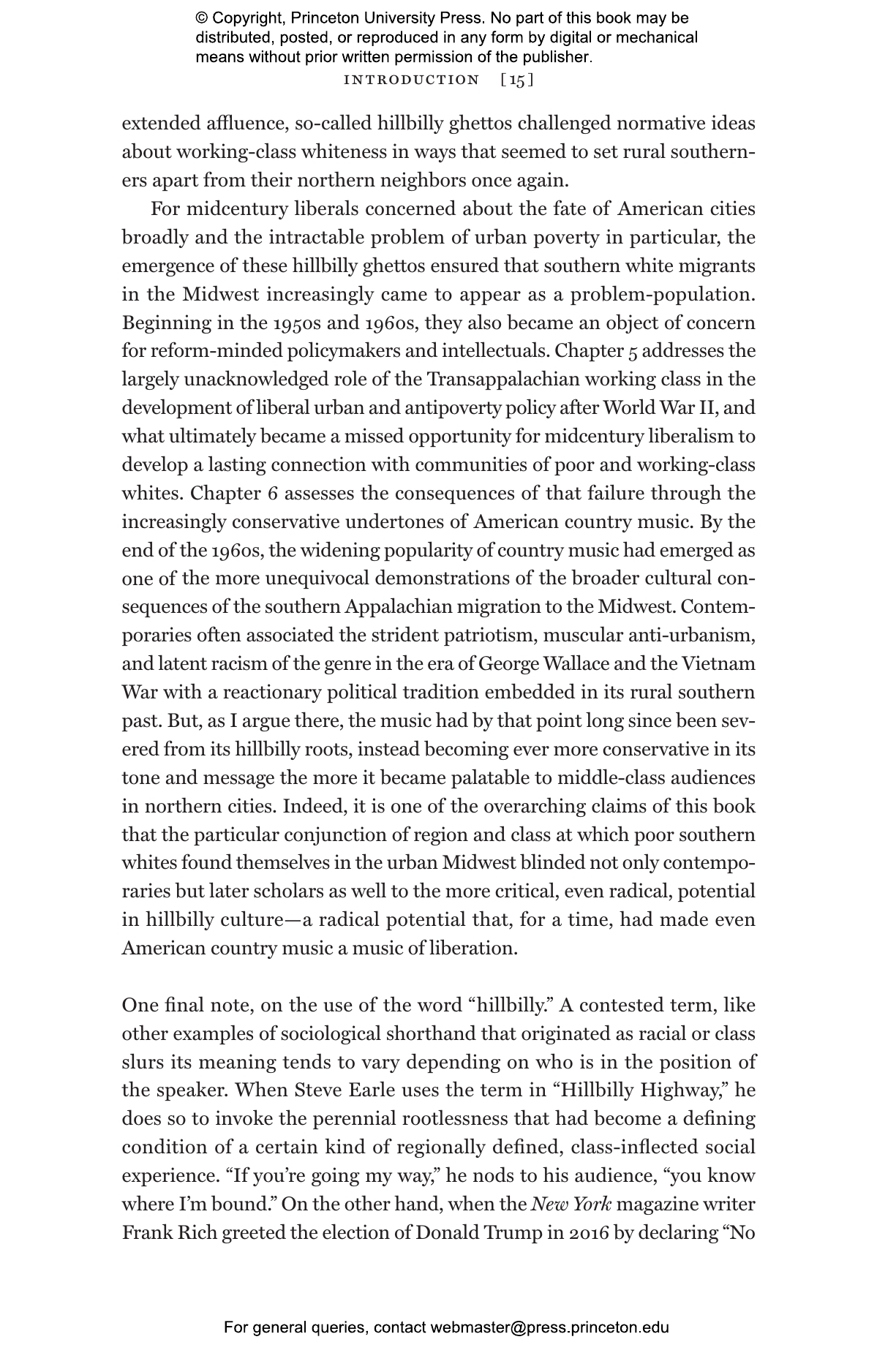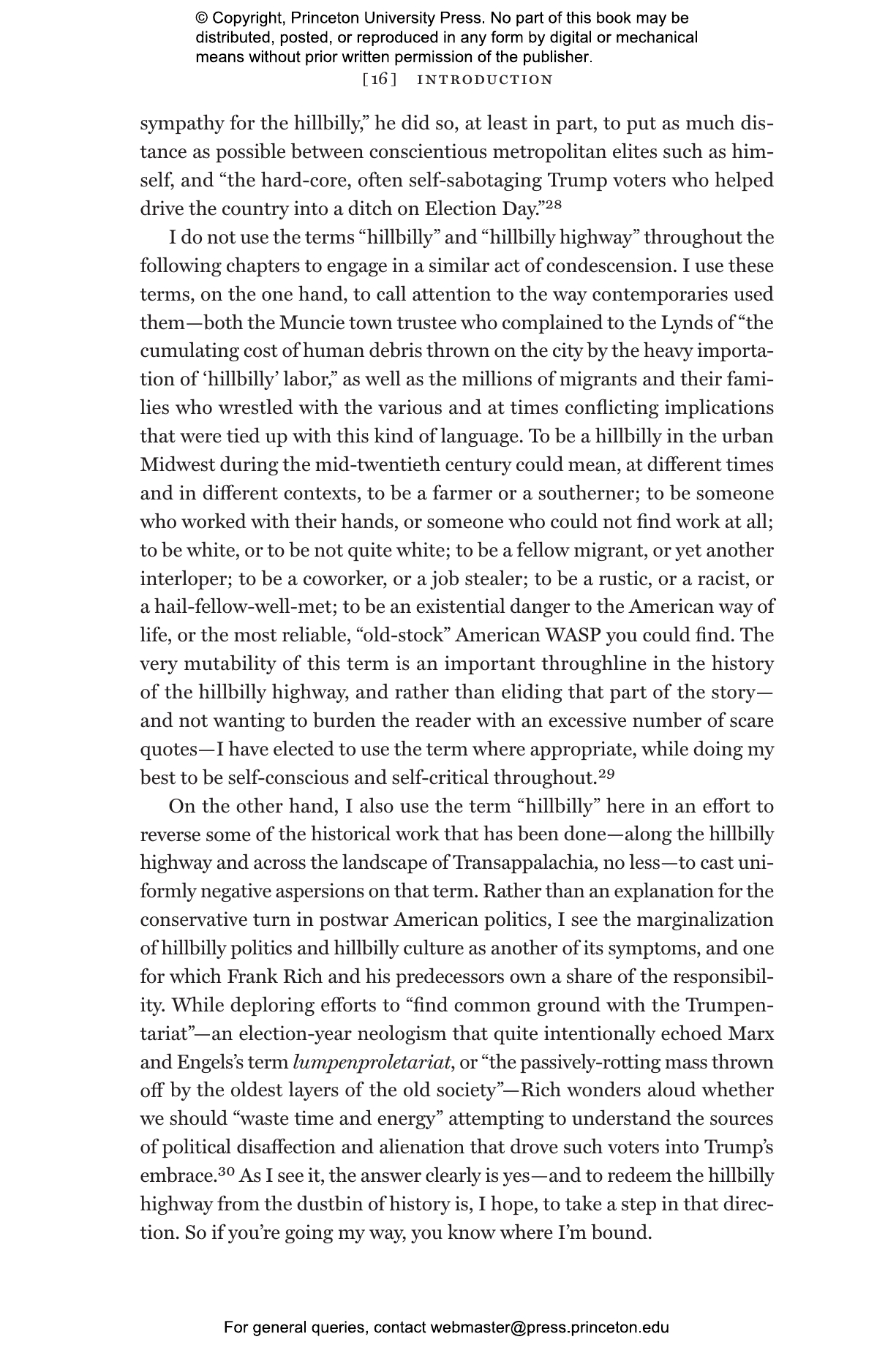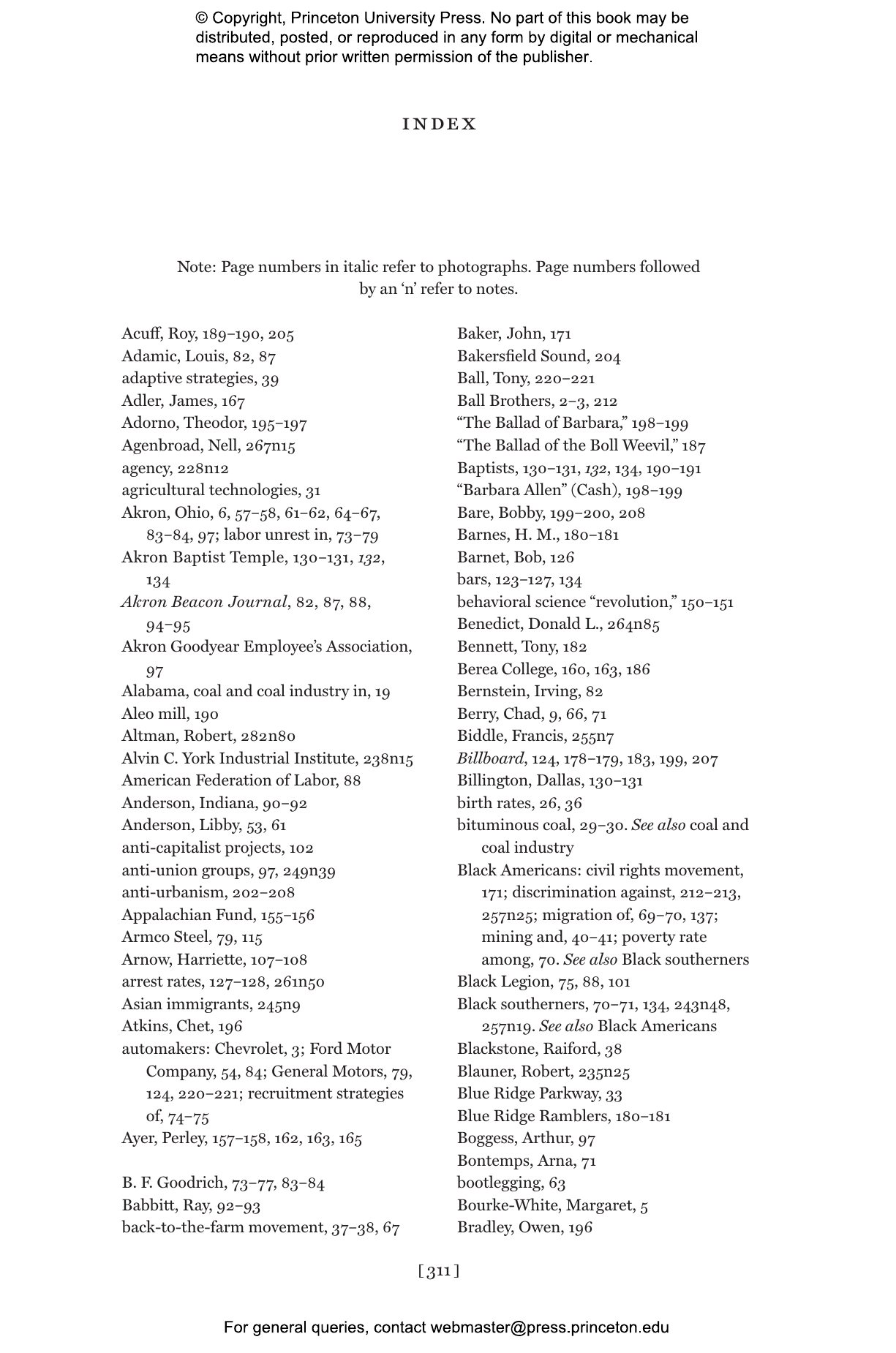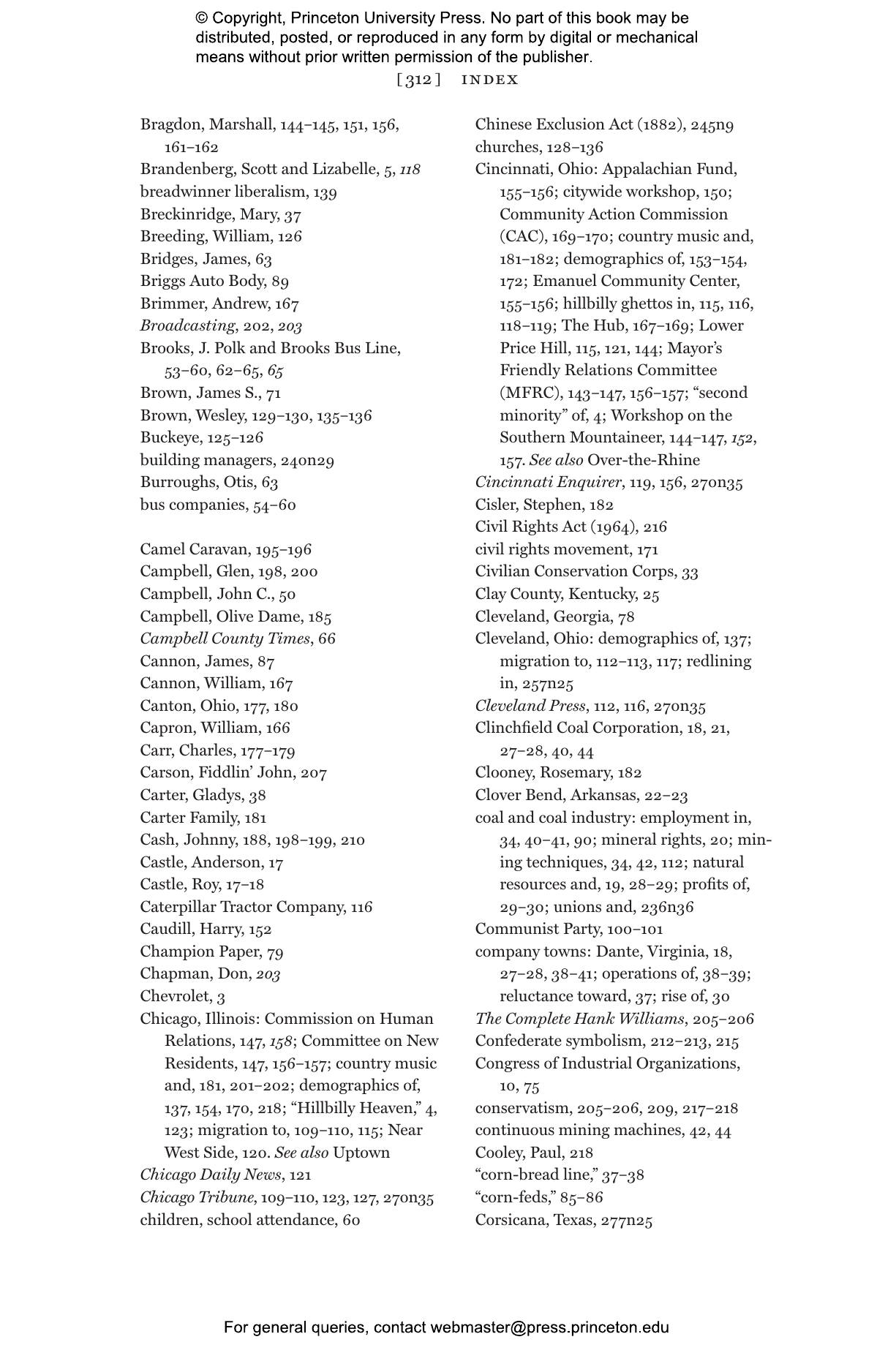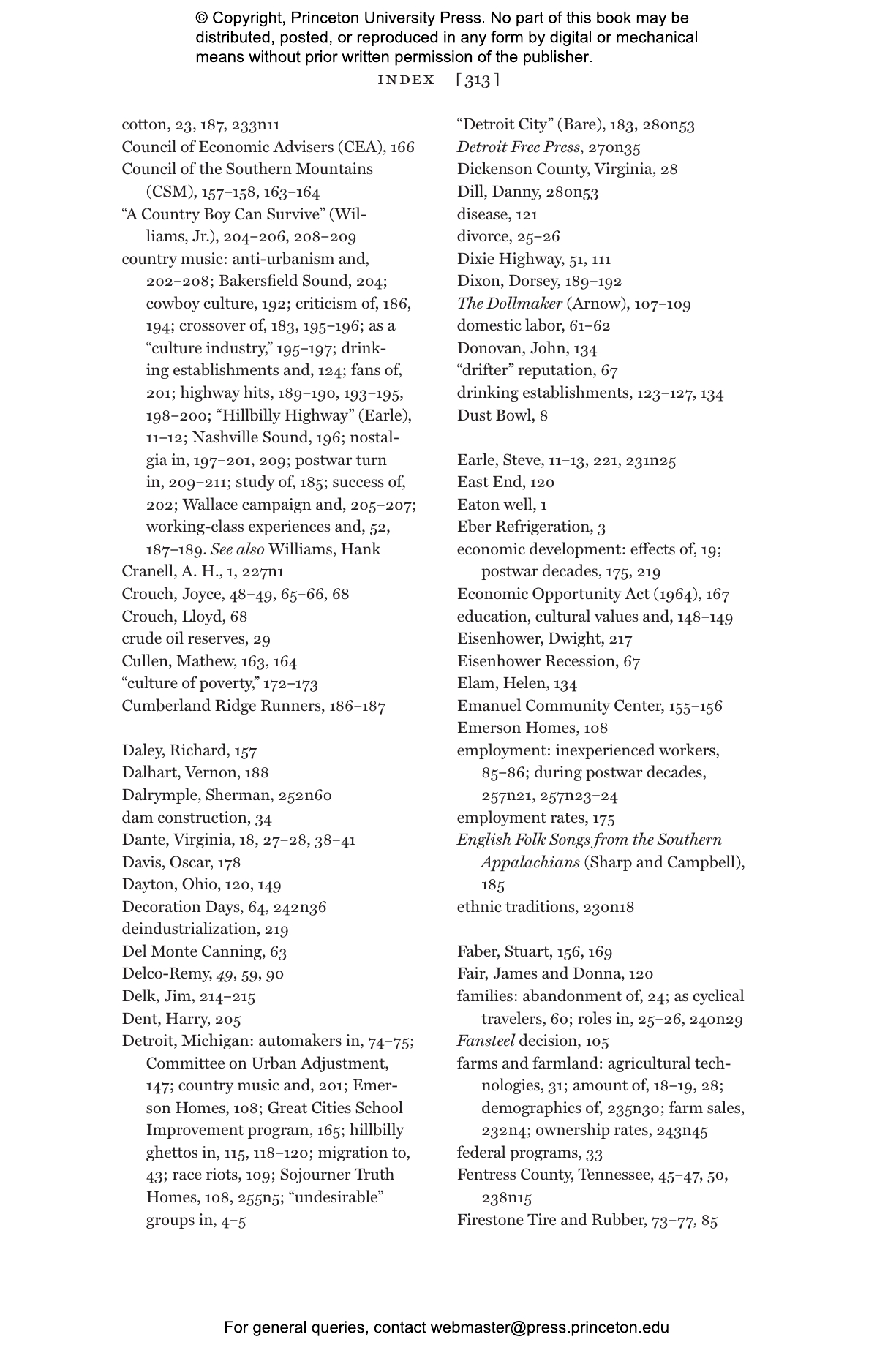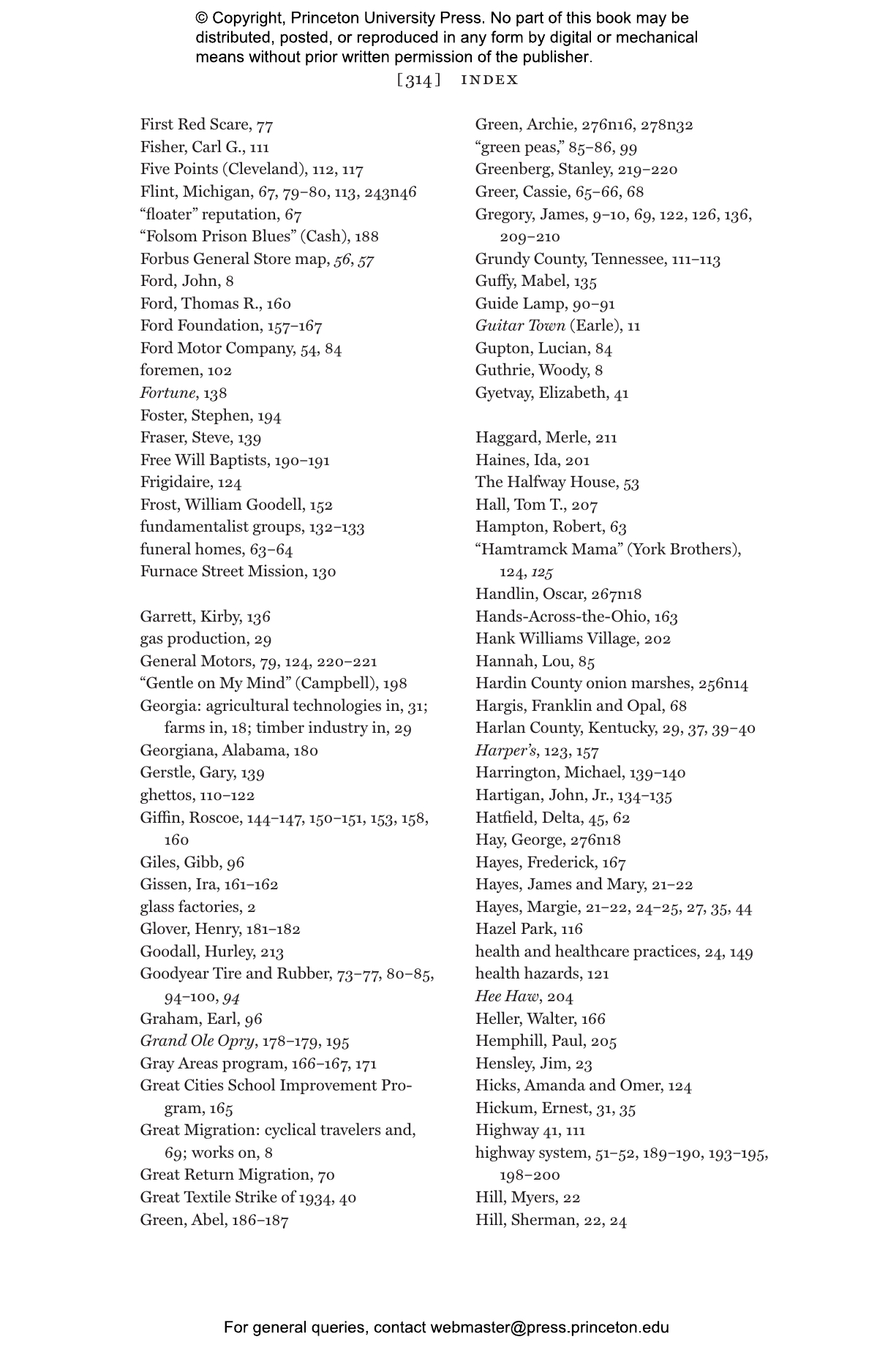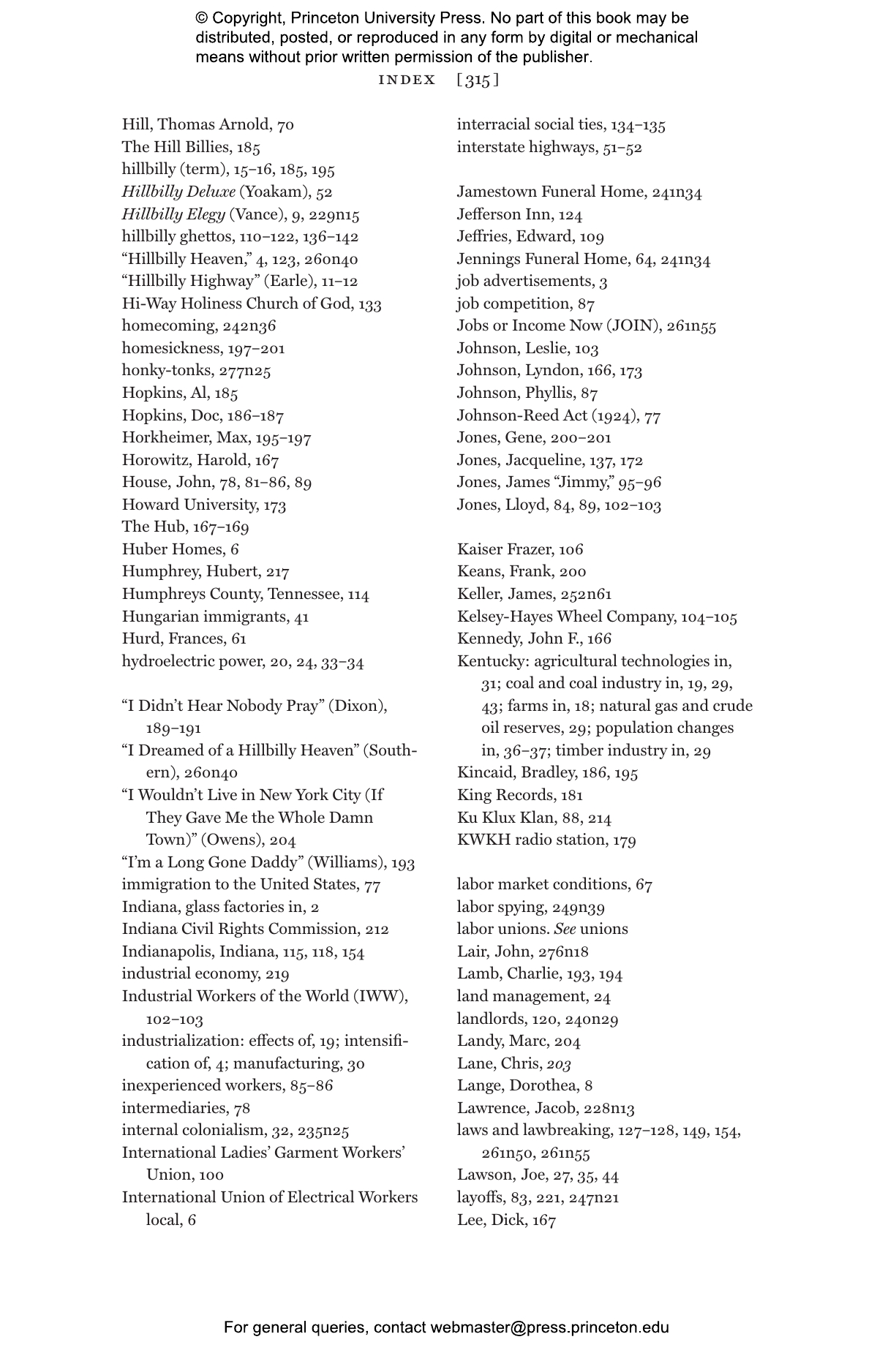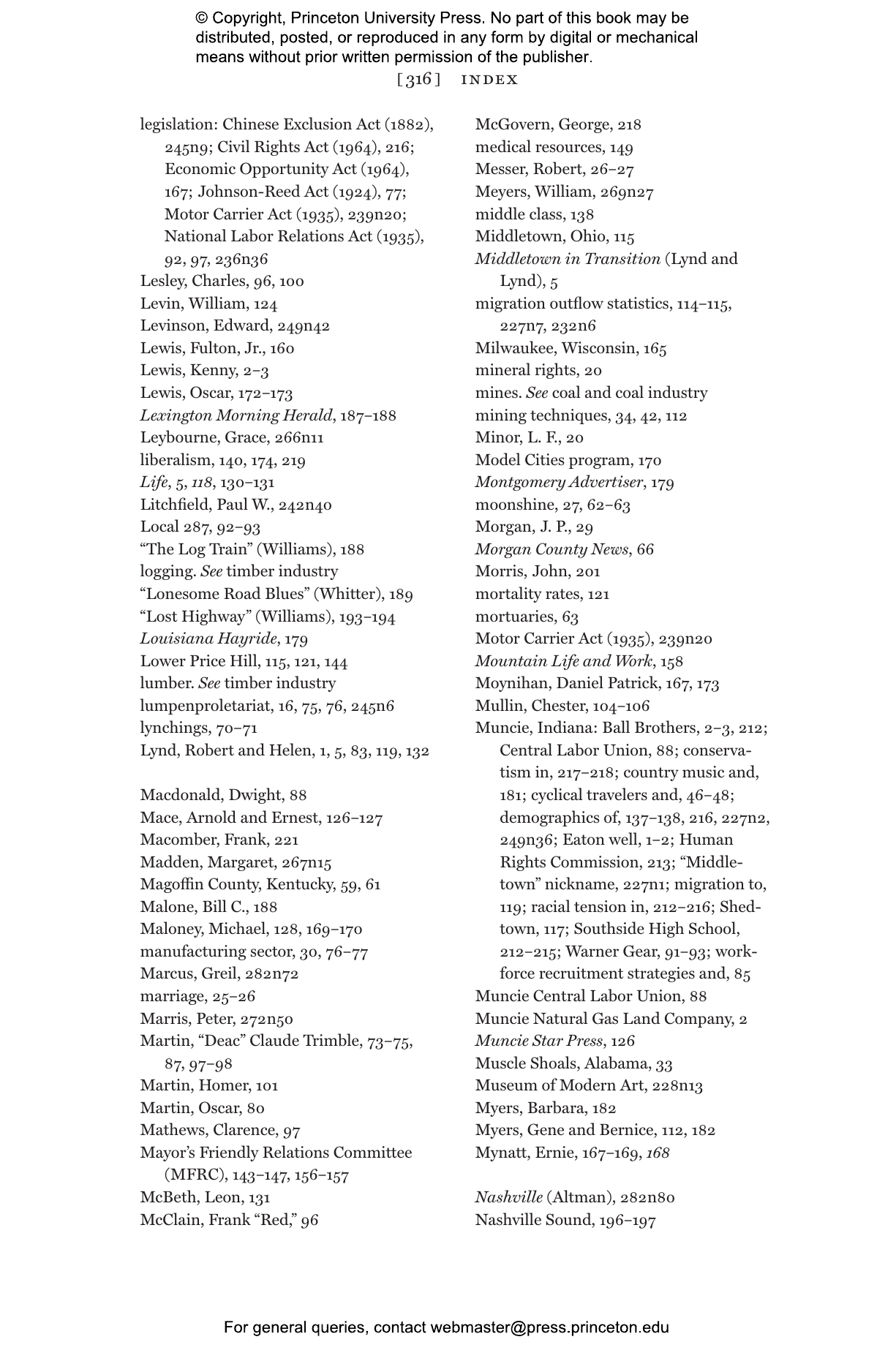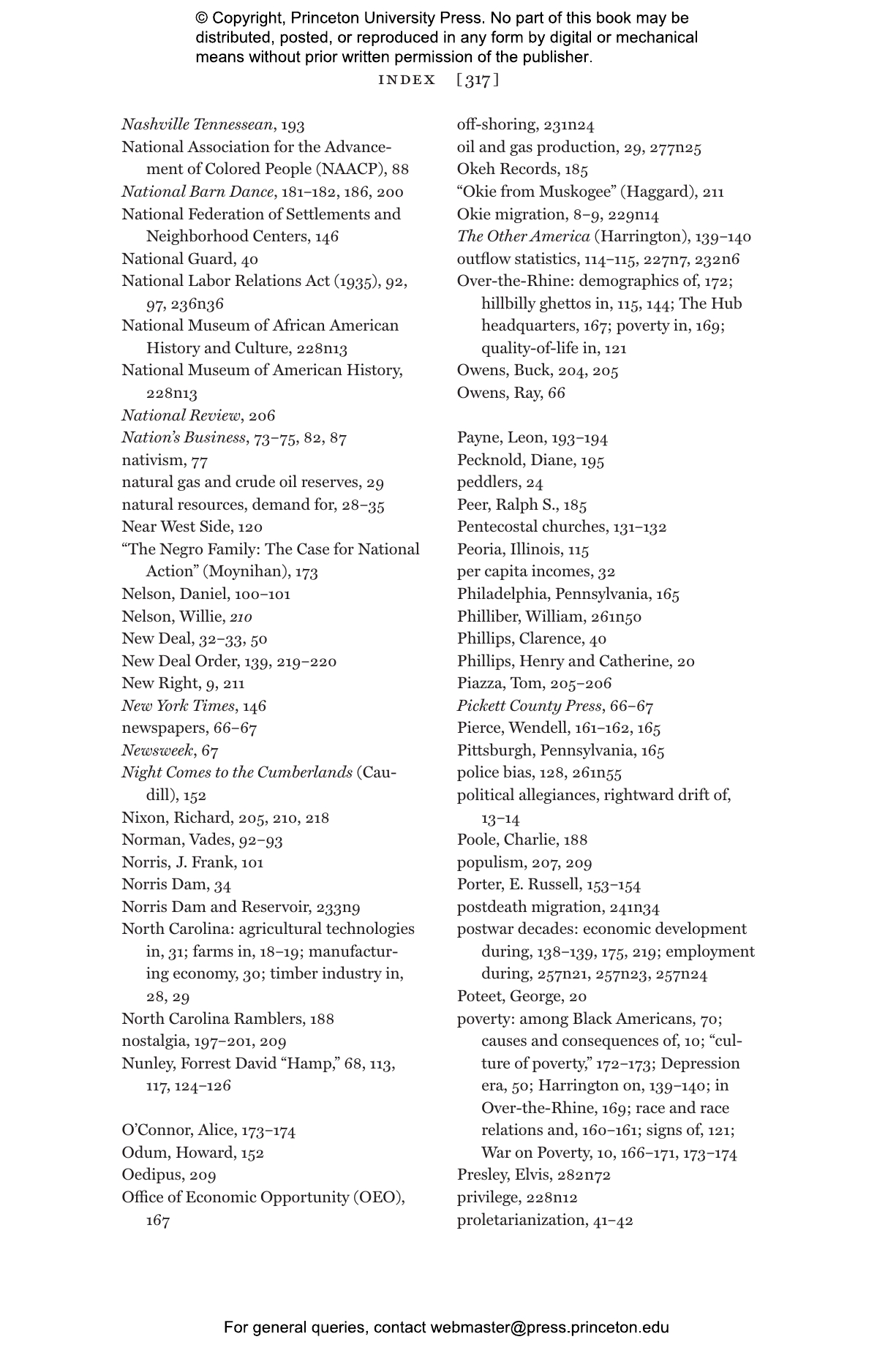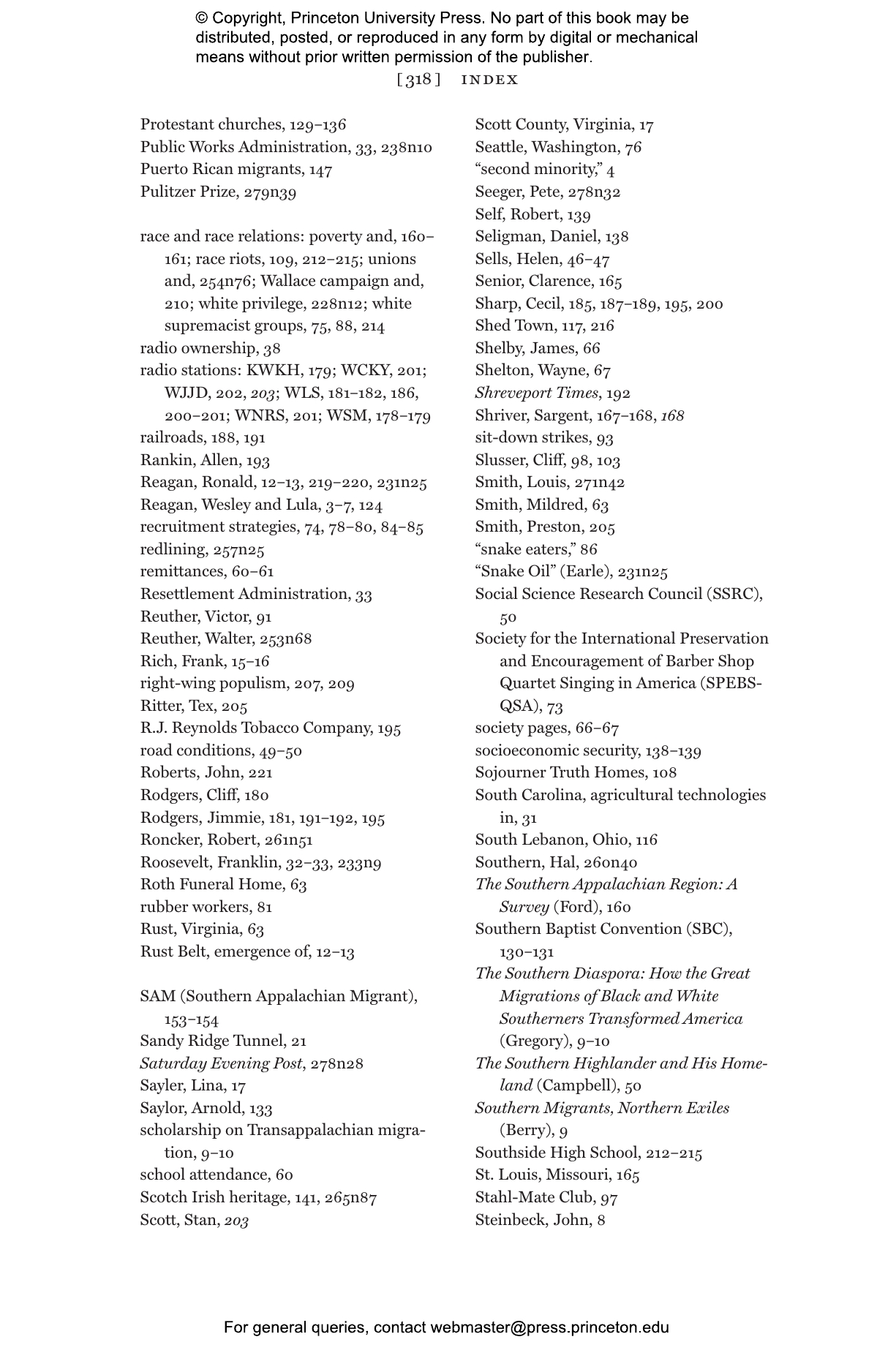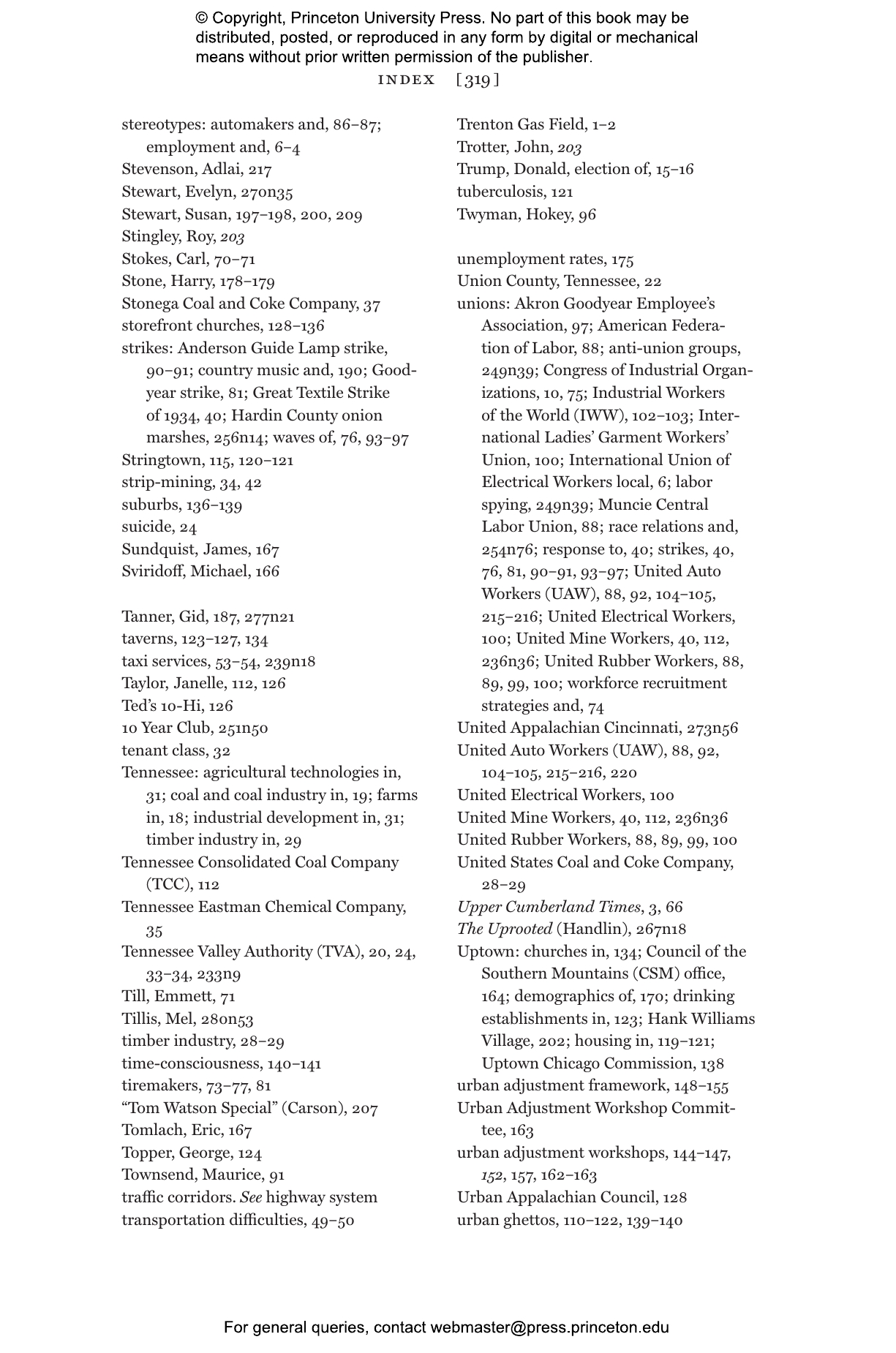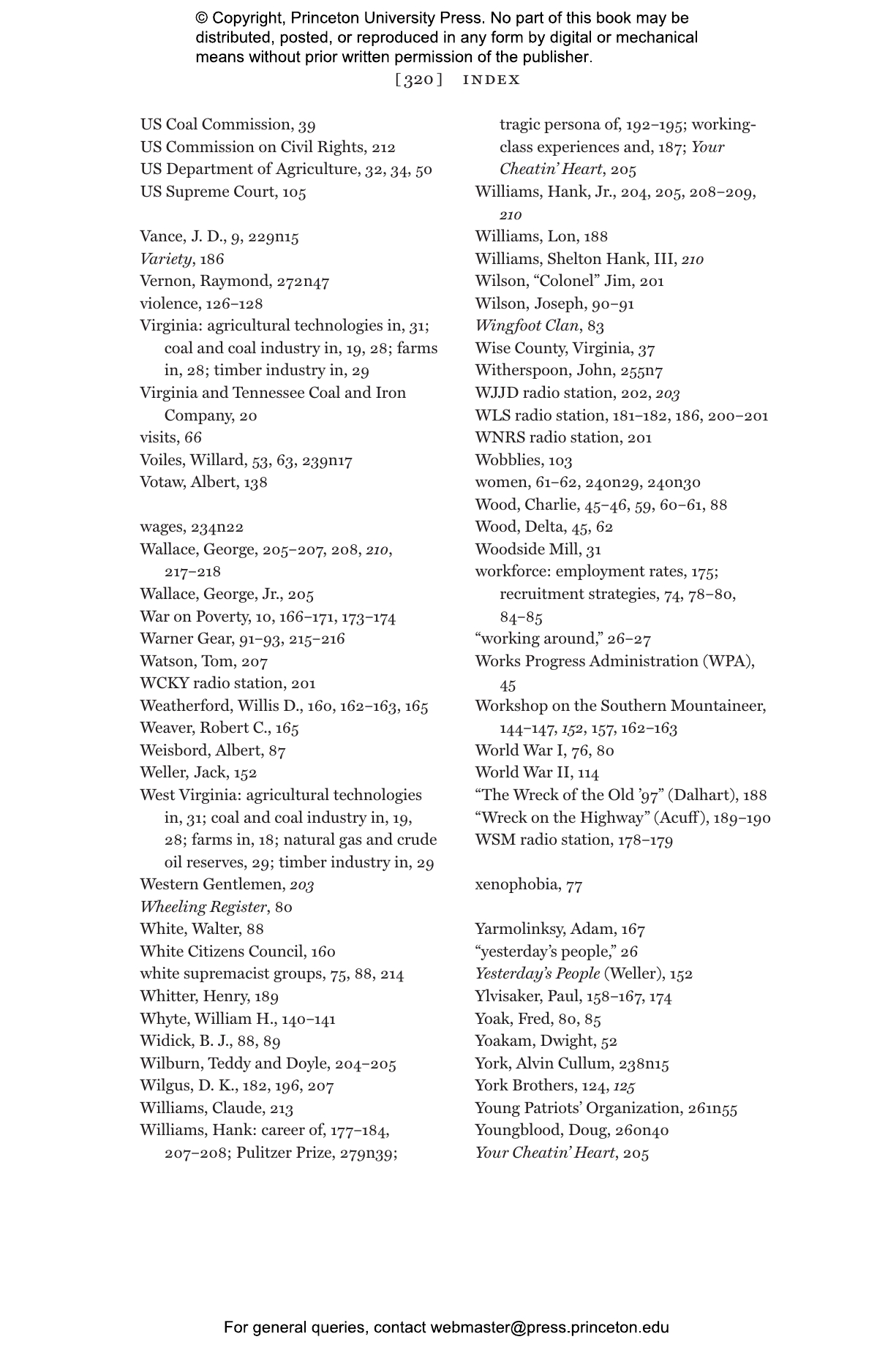Over the first two-thirds of the twentieth century, as many as eight million whites left the economically depressed southern countryside and migrated to the booming factory towns and cities of the industrial Midwest in search of work. The “hillbilly highway” was one of the largest internal relocations of poor and working people in American history, yet it has largely escaped close study by historians. In Hillbilly Highway, Max Fraser recovers the long-overlooked story of this massive demographic event and reveals how it has profoundly influenced American history and culture—from the modern industrial labor movement and the postwar urban crisis to the rise of today’s white working-class conservatives.
The book draws on a diverse range of sources—from government reports, industry archives, and union records to novels, memoirs, oral histories, and country music—to narrate the distinctive class experience that unfolded across the Transappalachian migration during these critical decades. As the migration became a terrain of both social advancement and marginalization, it knit together white working-class communities across the Upper South and the Midwest—bringing into being a new cultural region that remains a contested battleground in American politics to the present.
The compelling story of an important and neglected chapter in American history, Hillbilly Highway upends conventional wisdom about the enduring political and cultural consequences of the great migration of white southerners in the twentieth century.
Awards and Recognition
- Honorable Mention for the Frederick Jackson Turner Award, Organization of American Historians
"Fraser, a scholar of labor history at the University of Miami, corrects several misconceptions. . . . Many more poor white migrants left debt-burdened farms, dead-end jobs and shuttered mills, and ventured north on the ‘hillbilly highway’ to settle in poor white ghettoes such as Chicago’s Uptown, Muncie’s Shedtown and Dayton’s East End. . . . Fraser also challenges writers who blame poor white southerners for the rise of the anti-union right in the North. . . . The very humane stories in [Hillbilly Highway] could be just the thing to break the ice."—Arlie Russell Hochschild, New York Times
"In an engaging, richly detailed volume that stretches from patterns of land use to shifting class politics to the evolution of country music, Fraser traces the migration and its economic, social, cultural, and political consequences. He does not use the word ‘hillbilly’ in a derogatory sense but to illustrate the great variety of meanings neighbors and contemporaries attached to it. He sees the marginalization of hillbilly culture and politics as a symptom, rather than a cause, of the conservative turn in post-1960s politics."—Jessica T. Mathews, Foreign Affairs
"Hillbilly Highway has made a valuable contribution to our understanding of a forgotten and consequential phenomenon in midwestern history, a movement of people across regions that transformed key midwestern cities in what would become the most coveted of swing states and may well have influenced the political evolution of the country."—Colin Woodard, Washington Monthly
"[Hillbilly Highway] presents interesting conflicts between the rural transplants desperate for work and the employers who eagerly sought to employ them in the booming industrial centers. . . . The book benefits greatly from an extensive bibliography and chapter notes including government studies, industry reports, union records, oral histories and cultural notes such as the importance of country music."—Steven Davis, New York Labor History Association
“This remarkably wide-ranging and beautifully written book attacks head-on the accounts of the ‘hillbilly’ popularized by J. D. Vance and others and provides a fundamental reorientation of twentieth-century political, labor, and urban history. In doing so, Max Fraser offers important new insights that help explain the long roots of illiberalism among a group that has become ever more important to the political and economic story of the present.”—Lily Geismer, author of Left Behind: The Democrats’ Failed Attempt to Solve Inequality
“Hillbilly Highway is the first serious history of the mass migration of millions of poor southern whites into the cities of the Midwest after World War II. Max Fraser skillfully catalogs the experiences of rural transplants, explores class identity, reports on cultural backlash, and shows how these migrants, too often ignored, shaped the politics of welfare. This is an insightful, nuanced, and eye-opening book.”—Nancy Isenberg, author of White Trash: The 400-Year Untold History of Class in America
“Hillbilly Highway cuts a revelatory path through modern American history. With razor-sharp analysis and deep empathy, Max Fraser recovers the uneasy story of southern white migrants who transformed the nation’s industrial heartland—where they were often needed but rarely wanted. This is working-class history at its best.”—Jarod Roll, author of Poor Man’s Fortune: White Working-Class Conservatism in American Metal Mining, 1850–1950
“Eloquent and brilliant, Max Fraser’s Hillbilly Highway puts the reader on the road with the poor whites of the mountain South who travelled back and forth between the attachments and memories of home and the displacements and opportunities of Midwestern cities. Fraser’s tremendous achievement is to demonstrate beyond doubt that the Transappalachian Migration is essential for comprehending postwar liberalism, country music, the contradictions of whiteness, and the political realignment of the American working class in the twentieth century.”—Steven Stoll, author of Ramp Hollow: The Ordeal of Appalachia
